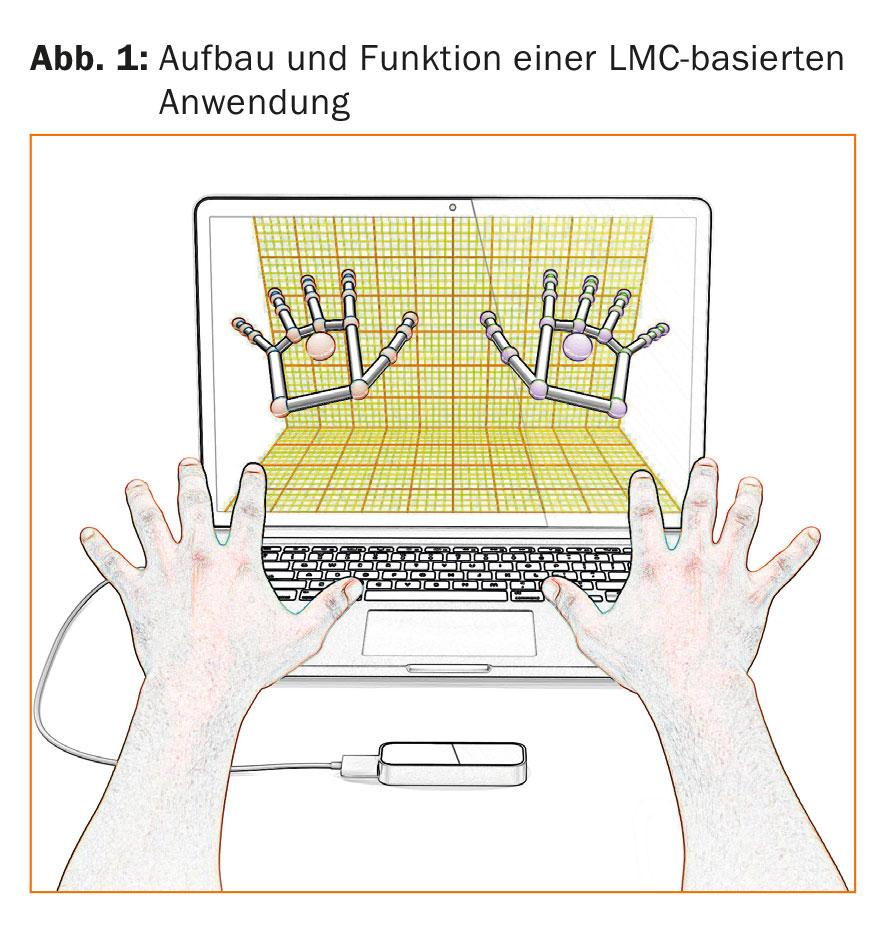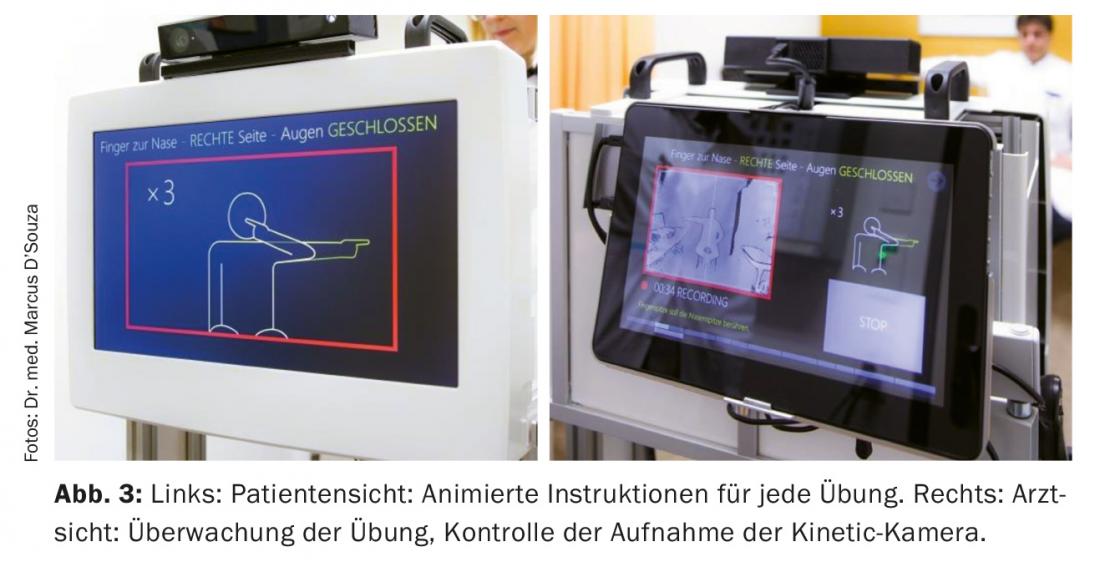Multiple sclerosis is a chronic inflammatory, degenerative autoimmune disease that can lead to significant impairments for those affected in their daily lives. App-based training offers and developments in the field of electronic movement reporting systems try to counteract the motor losses or to track them as accurately as possible.
Multiple sclerosis (MS) is a chronic inflammatory, degenerative autoimmune disease of the central nervous system, which can lead to a wide range of impairments for those affected in the course of its progression and thus significantly impair the quality of life of patients in the long term. Both accurately and as objectively as possible assessing the clinical course of disease, e.g., muscular limitations, and maintaining or enhancing muscular activity and dexterity are areas where quite new tools are being developed through virtual reality (VR), app-based training offerings, and developments in electronic movement reporting systems.
Apps – where do we stand?
There are currently several multiple sclerosis apps on the market, Dr. Vanbellingen reports. In addition to game-based training that can be used to improve motor function, there are offerings for cognitive enhancement as well as applications with informative and educational material about the disease process. For example, the Swiss Multiple Sclerosis Society has released its own app that can be downloaded for free. An overview of the Society’s work can be found, with information on the disease process, counseling services and detailed training instructions presented by MS patients in the form of video material. In general, it was reported that app- and video game-based training is supported by the Swiss Multiple Sclerosis Society. However, these offerings are not yet supported by health insurers. Such training thus remains experimental in nature for the time being.
On the subject of cognitive training, in 2015 an Italian research group looked at how well the app “COGNI-TRAcK”, which was developed in-house, was accepted in practice. The goal was to provide an easily accessible, self-scheduled training that can be performed at home, with the same benefits already known from personalized cognitive rehabilitation [1]. It was found that training with the app was well received and enjoyed by MS patients. Further studies on the effectiveness of this app-based training are to follow.
In an ongoing study, a research group led by Dr. Vanbellingen is investigating the effectiveness of another app [2]. “Finger Circus” is a tablet game that promotes motor dexterity of the hands or fingers and is already available (www.fingers-in-motion.de). The background of the targeted use in MS is the limited manual dexterity, which according to a study occurs in up to 76% of MS patients receiving outpatient care [3] and can limit them in many activities of daily living, such as cooking, cleaning or even personal hygiene. In the context of “Finger Circus”, six different games call for five important movements that are also often used in classical occupational therapy:
- Selective finger tapping
- Tweezer handle
- Wrist rotation
- Crossing the center of the body
- Selective circling finger I-II.
The basic requirement for use is the presence of a tablet, since the hand size has to be calibrated before starting the game. An advantage over other training sessions that patients are prescribed by therapists as home exercises is the patient-friendly online-based selectability of the individual game modules by the therapist as well as the possible feedback to the therapist as to whether the training has been carried out. The fact that home-based skill training generally has a significant positive effect in people with MS was already demonstrated in 2015 [4]. The focus of the current study around the app “Finger Circus” is on the question whether the good results of the classically conducted home-based dexterity training can also be achieved by the app.
As an impressive and amusing example of further tablet- or computer-based applications in the field of manual dexterity, Dr. Vanbellingen demonstrated the “Leap Motion controller” (LMC) with the help of a workshop participant. A sensor, about the size of a USB stick, is connected to the computer and then senses the movements of the hands without contact (Fig. 1). In this way, the computer and many games created especially for the sensor can be controlled with natural finger and hand movements. Of 108 games available in the associated app store, the “Airspace Store,” some were highlighted in the presentation, including: “Cut the Rope,” “ASL Digits,” and “Dots.” Currently, LMC-based applications are being tested for MS patients, the speaker said (www.multiplesklerose.ch/PDF/de/UEber_MS/Aus_der_Forschung/Unterstuetzte_Projekte/2017/SMSG_lay_summary_Vanbellingen_Tim_DE.pdf).

Developments in MS progression assessment
In the case of chronic diseases that can lead to limitations in motor functions, it is important to assess these physical changes as objectively and continuously as possible over a longer period of time. In the normal doctor-patient setting, this assessment depends on the practitioner and his or her experience, as well as on the patient’s daily form. In order to create basic comparability, the use of a uniform diagnostic language is useful. However, the scores available to date limit fine assessment by often assigning symptoms to specific categories. Thus, a patient’s motor function may deteriorate from one visit to the next, but still remain in the same category.
A new approach to constant and objective assessment of motor function is a computerized system that records and analyzes the patient’s movements with a kinetic camera and then automatically classifies them, called “Assess MS” (Fig. 2). The goal is a standardized and at the same time very detailed assessment, which allows to efficiently track the progression of the complaints. The assessment is based on a “Machine Learning Algorithm” (MLA).

Standardized conditions must be created in each case for adequate measurement:
- The background in front of which the patient sits must meet special conditions and must not contain any highly reflective surfaces, for example.
- The patient must be at a certain distance from the camera.
- For exercises performed with an assistant, a minimum distance must be maintained between the patient and the assistant.
- Clear verbal and videotaped instructions are needed for each exercise (Fig. 3).

A previously conducted study on the practical use of “Assess MS” [5] showed that this form of computer-assisted examination is readily accepted by both patients and medical professionals. One of the positively highlighted points was a time saving in the clinical examination, as the procedure was given in a very structured way. The user-friendliness is also practical; after a short introduction, the instrument can be used without any problems by physicians with different levels of experience as well as other medical professionals, e.g. nurses.
A pilot study demonstrated significant agreement in assessment between the MLA and experienced neurologists [6]. The advantage of machine evaluation is the constant repeatability of these results over an arbitrarily long period of time (regardless of any change of operator), whereas human evaluation has a wider range of results over time. Thus, with “Assess MS”, more consistent and standardized results can be achieved. Last but not least, such a system could also be operated in the home environment and by the patient himself, which would allow a more accurate assessment of the course of chronic progressive neurological diseases with muscular symptoms.
Source:20th State of the Art Symposium, 27 January 2018, Lucerne
Literature:
- Tacchino A, et al: A New App for At-Home Cognitive Training: Description and Pilot Testing on Patients with Multiple Sclerosis. JMIR Mhealth Uhealth 2015; 3(3): e85.
- A New App Home Based Dexterity Training in Multiple Sclerosis: a Randomized Controlled Trial. https://clinicaltrials.gov/ct2/show/NCT03369470.
- Johansson S, et al: High concurrent presence of disability in multiple sclerosis. Associations with perceived health. J Neurol 2007; 254(6): 767-773.
- KammCP, et al: Home-based training to improve manual dexterity in patients with multiple sclerosis: A randomized controlled trial. Mult Scler 2015; 21(12): 1546-1556.
- Morrison C, et al: Usability and Acceptability of ASSESS MS: Assessment of Motor Dysfunction in Multiple Sclerosis Using Depth-Sensing Computer Vision. JMIR Hum Factors. 2015 Jan-Jun; 2(1): e11.
- D’Souza M, et al: Accuracy of depth-sensing recordings in classifying Expanded Disability Status Scale subscores of motor dysfunction in patients with multiple sclerosis. Neurology 2016; 86 (16 Suppl): P2.139 poster and oral presentation at AAN 2016.
InFo NEUROLOGY & PSYCHIATRY 2018; 16(2): 44-46.











